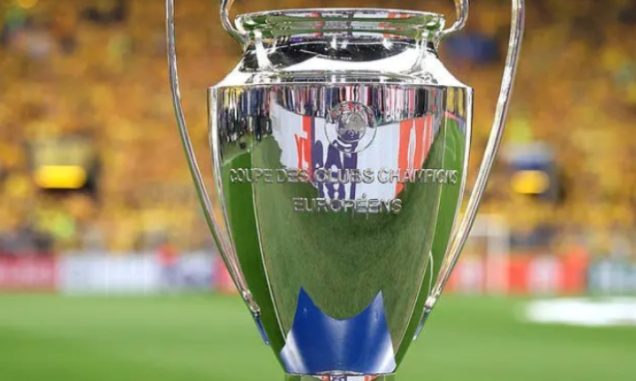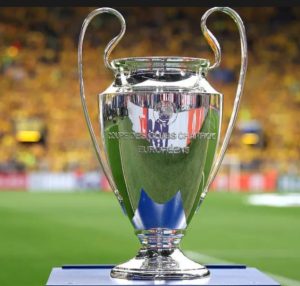
How Manchester City is set to miss out on European championship despite qualifying

Over the last decade, the market for owning or investing in a football club has surged, with many A-list actors, elite retired athletes and wealthy business men all getting in on the action.
However for some, owning one football club is frankly not enough – roll in multi-club ownership groups.
Multi-club ownership groups have become a frequent sight in the football world, with over 180 clubs worldwide being a part of the model according to UEFA research.
Manchester City lead the way when it comes to multi-club owned teams, as they have a worldwide group of 13 partners, Red Bull follow suit with the possession of five teams in Europe and America. While Manchester United are the latest club to be affiliated with another club after Sir Jim Ratcliffe took over a minority stake in the Red Devils.
Here is everything you need to know about multi-club ownership and how it may impact your favourite football team such as Manchester City or United from playing European football.
Spanish side Giro have qualified for the Champions League for the first time ever in the club’s history
Spanish side Giro have qualified for the Champions League for the first time ever in the club’s history
They may not be eligible to play however as their partner club Manchester City is also on course to qualify for the competiton
They may not be eligible to play however as their partner club Manchester City is also on course to qualify for the competiton
Under UEFA regulations, it is stated that two teams controlled by the same group is not permitted to play in the Champions League
Under UEFA regulations, it is stated that two teams controlled by the same group is not permitted to play in the Champions League
UEFA Rules on multi-club ownership
Following the news that Spanish side Girona will play in the Champions League next season, questions have started to rise on whether or not the Spanish side will be able to play in next year’s competition.
Why? because they are a part of the City football group and UEFA states that ‘No club participating in a UEFA club competition may, either directly or indirectly hold or deal in the securities or shares of any other club participating in a UEFA club competition’.
Girona’s affiliation with the City football Group may jeopardise their European involvement as Manchester City are also on course to qualify for the competition.
In terms of the rules surrounding this topic UEFA state as stipulated in Article 5 of the UEFA’s Champions League regulations that…
‘No club participating in a UEFA club competition may, either directly or indirectly hold or deal in the securities or shares of any other club participating in a UEFA club competition, be a member of any other club participating in a UEFA club competition, be involved in any capacity whatsoever in the management, administration and/or sporting performance of any other club participating in a UEFA club competition, or have any power whatsoever in the management, administration and/or sporting performance of any other club participating in a UEFA club competition.’
The article goes on to further highlight how the regulations says that “No one may simultaneously be involved, either directly or indirectly, in any capacity whatsoever in the management, administration and/or sporting performance of more than one club participating in a UEFA club competition.’
Before continuing to say ‘No individual or legal entity may have control or influence over more than one club participating in a UEFA club competition, such control or influence being defined in this context as: holding a majority of the shareholders’ voting rights, having the right to appoint or remove a majority of the members of the administrative, management or supervisory body of the club, being a shareholder and alone controlling a majority of the shareholders’ voting rights pursuant to an agreement entered into with other shareholders of the club, or being able to exercise by any means a decisive influence in the decision-making of the club.’
Manchester United could face the same problem as Man City and Girona in the future
Manchester United could face the same problem as Man City and Girona in the future
Business man Sir Jim Ratcliffe recently took over the Red Devils and already owns French side OGC Nice
Business man Sir Jim Ratcliffe recently took over the Red Devils and already owns French side OGC Nice
Ratcliffe is the primary stakeholder at French side OGC Nice
Ratcliffe is the primary stakeholder at French side OGC Nice
So what does this mean, can two clubs owned by the same owner play in Europe?
The simple answer to a complicate issue is that yes, two clubs owned by the same group can appear in Europe together.
However their are rules each club must follow and UEFA will also do an investigation into the clubs leadership and management before approving such participation.
The reasoning as to why two clubs would not be allowed to participate in Europe would be because of a lack of compliance regarding the regulations and if two teams were directly controlled by the same person or group.
As stated earlier it it very unlikely that UEFA or any of the major league across the world would allow clubs in the same competition to be directly controlled by the same group due to the risk of damaging the integrity of the sport and/or league.
However multi-owned clubs have found loop holes around the regulations.
One such example is RB Leipzig and Red Bull Salzburg who are both owned by the Red Bull Group.
UEFA cleared that both sides could participate in Europe because although they are both owned by the same parent company, they are controlled by two very different distinct management structures.
Therefore it is possible that Manchester City and Girona could participate in the same competition once they are able to prove the two sides are only ‘owned’ by the same entity and not ‘controlled’ by them.
The same would go for Sir Jim Ratcliffe’s Manchester United and Nice if they were to both qualify for Europe in the future.
The Red Bull group have proving that it is possible to have two teams owned by the same parent company participate in Europe
The Red Bull group have proving that it is possible to have two teams owned by the same parent company participate in Europe
Both RB Leipzig and Red Bull Salburg (pictured) have appeared in Europe together
Both RB Leipzig and Red Bull Salburg (pictured) have appeared in Europe together
What is an example of a multi club model?
There are many examples of mulit-club ownerships, however the most obvious would have to be the City group.
The City Group own 13 teams across the globe, Manchester City, New York City FC (USA), Melbourne FC (Australia), Yokohama F. Marinos (Japan), Montevideo City Torque (Uruguay), Girona (Spain), Mumbai City (India), Sichuan Jiuniu (China), Lommel (Belgium), Troyes (France), Palermo (Italy), Bahia (Brazil) and Club Bolivar (Bolivia).
Another example is the Red Bull Group who own RB Leipzig (Germany), New York Red Bulls (US), Red Bull Bragantino (Brazil), Red Bull Brasil (Brazil) and FC Red Bull Salzburg.
What English clubs are apart of multi-club models?
Manchester City, Manchester United, Aston Villa, Brighton, Leicester City and Cyrstal Palace are all affiliated with another club.
Leicster City owners, King Power International also have control over Belgian team Leuven, while American businessman John Textor leads Eagle Football Holdings, who have power over Crystal Palace, Olympique Lyonnais (France), Botafogo (Brazil), Molenbeek (Belgium) and FC Florida (USA).
Brighton’s owner, English Business man Tony Bloom is also the majority owner of Union Saint-Gilloise, whilst Aston Villa’s owners V Sports also have stakes in Vitoria Guimaraes.
Leave a Reply